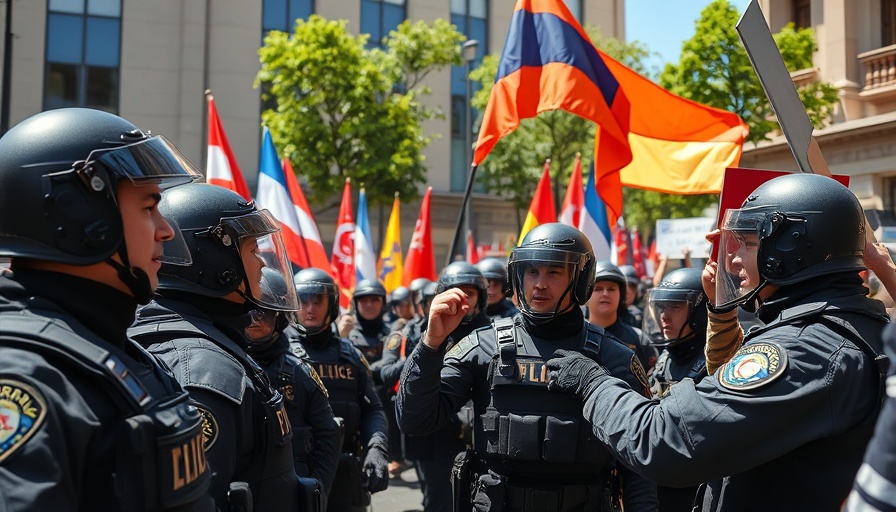
Revisiting the Impact of Rubber Bullets in Protests
The recent use of rubber bullets against protesters in Los Angeles mirrors the civil unrest witnessed during the 2020 protests following George Floyd's tragic death. Amid the ongoing immigration raids by the Trump administration, demonstrators are once again facing 'less lethal' weaponry—productively igniting an essential dialogue on the implications of such policing strategies.
Understanding the Dangers of 'Less Lethal' Weapons
Despite being marketed as safe alternatives to live ammunition, rubber bullets wreak havoc on human bodies. Investigative reports from reputable sources, including KFF Health News and USA Today, have documented a myriad of injuries inflicted by these projectiles. Victims have reported severe outcomes, ranging from fractured skulls to permanent vision loss, leading many to question the ethics behind their deployment during peaceful protests.
Community Response and Future Implications
As protests arise in response to governmental actions, community advocates are calling for more accountability regarding police practices. The concern centers not just on the health ramifications of rubber bullets, but also on the broader societal implications they bring. With heightened scrutiny, discussions about banning or regulating the use of these weapons continue to gain traction, leading to a potential shift in law enforcement policies.
The Broader Context of Health and Safety
For those passionate about health and wellness, understanding the intersection of political action and physical safety is crucial. The risks posed by less lethal weapons can impact mental well-being, creating an environment of anxiety and fear during protests. As health enthusiasts, advocating for safe and healthy communal spaces matters; thus, it is imperative to promote a deep understanding of the physical dangers associated with these policing methods.
Taking Action for Change
Individuals can play a role in shaping a movement towards safer protest environments. Engaging in discussions about the consequences of less lethal weapons, supporting organizations that advocate for police reform, and raising awareness on social media are all potent ways to contribute to this transformative dialogue.
 Add Row
Add Row  Add
Add 




 Add Row
Add Row  Add
Add 



Write A Comment